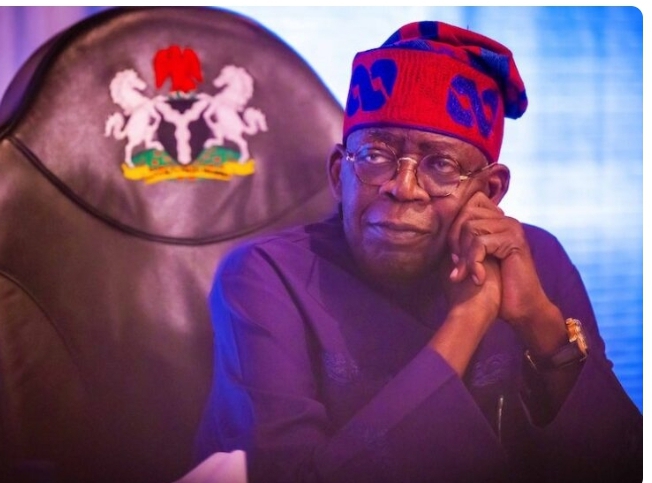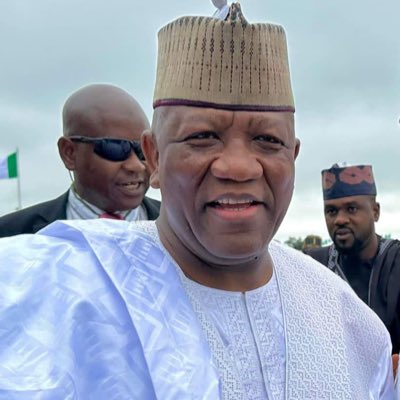President Bola Tinubu has revealed his nominees for ministerial positions, including prominent figures such as Nyesom Wike, Nasir el-Rufai, Gboyega Oyetola, and Ben Ayade.
President Bola Tinubu has officially nominated a distinguished group of individuals for ministerial positions, stirring anticipation across the nation.
Among the prominent figures featured on the unveiled Ministerial List are Nyesom Wike, Nasir el-Rufai, Gboyega Oyetola, and Ben Ayade, who have all previously served as governors.
The Senate floor will witness the announcement of the complete list, also encompassing President Tinubu’s top aide, Dele Alake; legal luminary, Lateef Fagbemi, SAN; APC national woman leader, Dr. Betty Edu; former Lagos State Commissioner for Finance, Wale Edun; former Minister of State for Health, Prof. Ali Pate, and ex-deputy governor of CBN, Adebayo Adelabu from Oyo State.
Nyesom Wike – Championing Rivers’ Progress
Nyesom Wike’s tenure as the governor of Rivers State left an indelible mark on the region’s development. His dedication to infrastructure and social welfare projects endeared him to the people.
Nasir el-Rufai – Kaduna’s Visionary Leader
Nasir el-Rufai, the former governor of Kaduna State, has been a visionary force in shaping the state’s progress. His focus on education and economic empowerment garnered accolades during his tenure.
Gboyega Oyetola – Transforming Osun’s Landscape
Gboyega Oyetola’s leadership in Osun State was marked by innovative policies that brought positive changes to various sectors, particularly education and agriculture.
Ben Ayade – Pioneering Cross River’s Growth
Ben Ayade’s dynamic leadership as the governor of Cross River State led to significant advancements in tourism, agriculture, and industrial development.
Other Notable Nominees
Apart from the former governors, President Tinubu’s Ministerial List comprises accomplished individuals from diverse backgrounds.
Dele Alake – President Tinubu’s Trusted Aide
As President Tinubu’s top aide, Dele Alake’s strategic acumen and unwavering loyalty have been crucial in shaping the administration’s policies and initiatives.
Lateef Fagbemi, SAN – Legal Luminary Extraordinaire
Lateef Fagbemi, a Senior Advocate of Nigeria (SAN), brings a wealth of legal expertise to the table. His profound understanding of the law will undoubtedly contribute to effective governance.
Dr. Betty Edu – Championing Women’s Empowerment
As the APC national woman leader, Dr. Betty Edu is a stalwart advocate for women’s empowerment and gender equality, promising to advance these causes further.
Wale Edun – A Financial Maestro
Wale Edun’s remarkable tenure as the Lagos State Commissioner for Finance reflects his astute financial prowess and dedication to fiscal responsibility.
Prof. Ali Pate – Healthcare
Prof. Ali Pate, the former Minister of State for Health, is renowned for his groundbreaking contributions to healthcare reform and disease eradication efforts.
Adebayo Adelabu – Financial Expertise at the Forefront
With his background as the ex-deputy governor of the Central Bank of Nigeria (CBN), Adebayo Adelabu’s expertise in financial matters is set to play a vital role in economic decision-making.
The Anticipated Senate Announcement
Senate Leader, Opeyemi Bamidele, recently revealed that President Tinubu personally informed him of the impending Thursday morning announcement on the Senate floor.
As Nigerians eagerly await this significant revelation, prayers for the right choices are sought to guide the nation’s future.
President Bola Tinubu’s Ministerial List boasts a diverse and accomplished set of nominees, representing a wide array of expertise and leadership qualities.
With figures like Nyesom Wike, Nasir el-Rufai, Gboyega Oyetola, and Ben Ayade headlining the list, the nation can anticipate a cabinet that is poised to tackle various challenges and drive progress in Nigeria. As the unveiling event approaches, all eyes remain fixed on the Senate floor to witness this pivotal moment in the nation’s governance.
No schema found.









